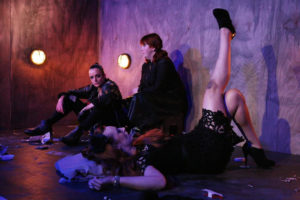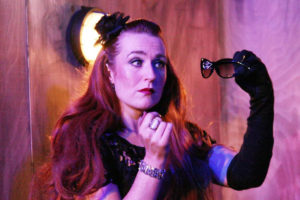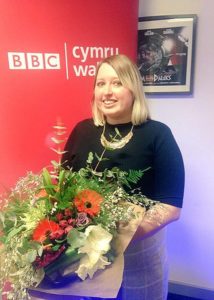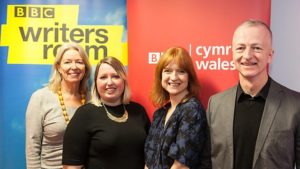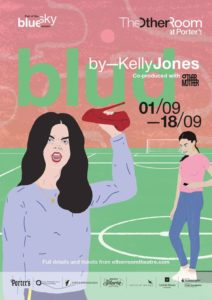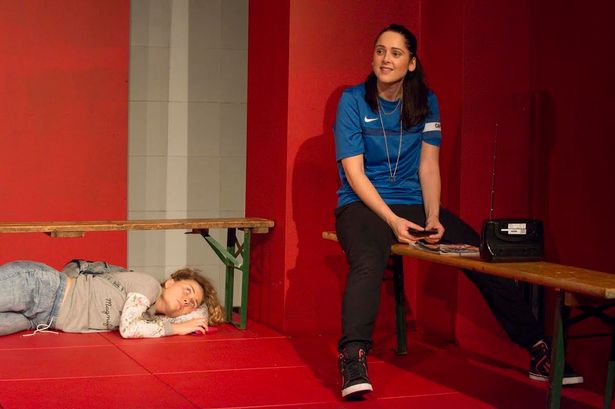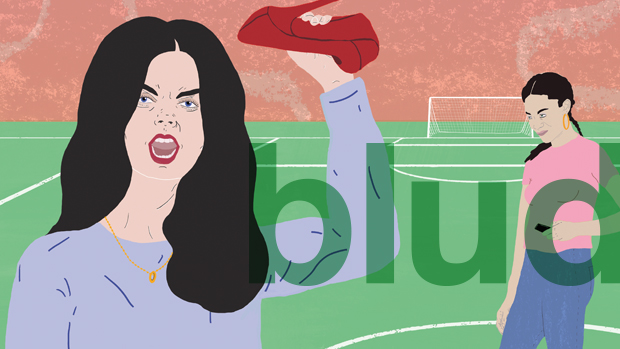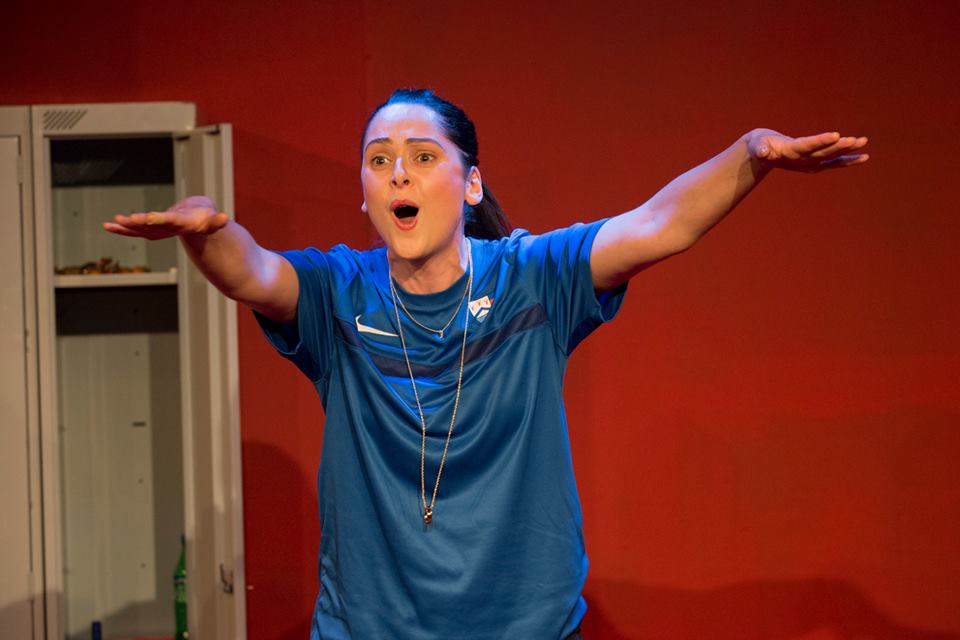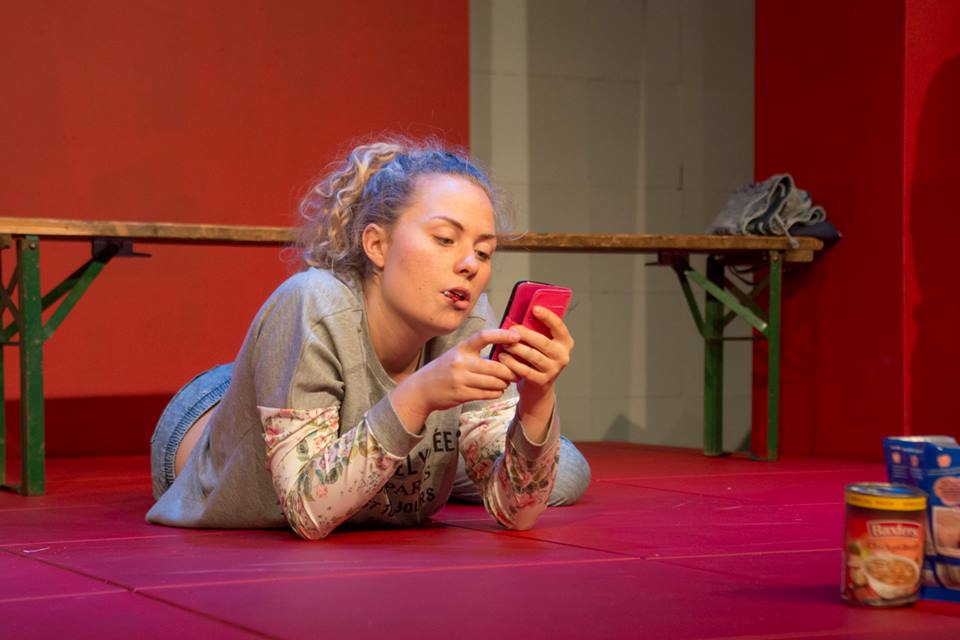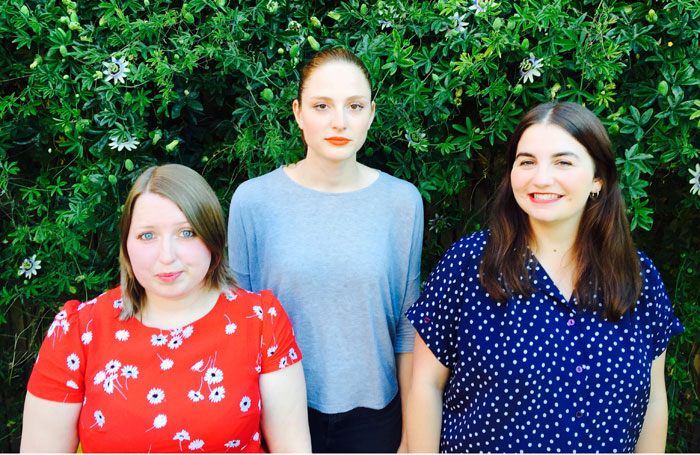 (3 / 5)
(3 / 5)
Humanequin by Kelly Jones is a groundbreaking collection of three stories from young transgender people in South Wales. It is raw in its monologue format and informative in its direct approach.
The stories come straight from real life and that reality is enhanced by having three transgender actors on stage. The fact that Humanequin is the first transgender play, with an all transgender cast performed in Wales, makes it truly groundbreaking. And the production is stronger for it.
The thing with this production is, it isn’t necessarily about the theatrical quality, that I am reviewing here. It is much more about what we as an audience take away from it. This is about telling and normalising the stories of transgender for the people of Cardiff and wider society. So to start without mentioning that would be a disservice.
The direction of this production from Jain Boon could be stronger. There is some nice blocking and movement in this piece. And moments that are strong. But overall, it lacks the intensity necessary for a piece like this.
Sammy Woodward stands out as the actor with the most emotional range and they really feel in the moment with their character. Emily Joh Miller grows into her performance whilst Harry Bryant keeps a steady pace throughout. The three work quite well together, but there is that lack of intensity and chemistry between the three.
Georgina Miles’ set design is simple, yet effective. The most prominent pieces of set are some blocks and three metal grates that get moved around to change the setting. There is also a tree with tags for leaves. On these tags are written names of trans people who have been lost over the years. This tree is a really nice touch and whilst not actively used in the performance, watches over the actors and certainly adds a lot. The set is nothing extravagant, but effective in its job.
Chris Young’s sound design is really complimentary to the production with Ceri James’ lighting design representing the emotion of the piece well. The main criticism for these two is there isn’t enough. At times these aspects of design are really strong, but in others they are absent, in a way that doesn’t translate well.
As a cis woman, Kelly Jones takes on a big task of writing for a group of people we very rarely hear about. But, a task she handles well as far as the content goes.
It’s more Jones’ playwriting that lets her down. It’s not a bad script by any means, and as a piece that is ultimately meant to educate, it does a very good job. But as a compelling piece of drama it is lacking.
The three intertwined stories told as monologue is a form I personally love, but here it doesn’t work for some reason.
Characterisation also gets lost in an attempt to normalise the characters. Aspects of their personalities seem trivial. As well as this, some of the politics is very on-the-nose. Not an issue in itself, but again, it just doesn’t feel right here. It seems forced. Something that is maybe necessary for the piece, but needs to be worked into the production in a stronger way.
One decision made in the writing process that was really good, was to not make every story all “doom and gloom”. It would be easy to make this a sympathetic piece of theatre that looks at the struggles of trans people with the far too often real life consequences. And that reality is not ignored here. But neither is the reality that these are people. They act out, they do things that seem irrational at the time. But like any good playwright, Jones examines and explains them by the end of the story.
Perhaps in another performance context such as being held in a different venue, at an earlier time, in a school or university, as part of an education programme or whatever it is, this could be a fantastic production. And for people who know little about trans-issues, this would certainly be a very informative and emotional way to be introduced to these issues. So that must be commended. But, for the audience that, on the night I was there, seemed very clued up on these issues, it perhaps lacked the dramatic value that we go to the theatre for.
Not necessarily to be entertained, but to leave having found or felt something. And whilst for an audience without knowledge of trans-issues, this would be great. For those with that knowledge, it doesn’t offer much.
If this piece moves forward, the decision needs to be made whether this is an educational piece or a different form of theatre. Because both have their place and both are necessary for the growth of trans-theatre and the awareness of trans-issues in wider society. But this just feels like it’s biting off more than it can chew.
Humanequin is a strong, educational piece of theatre about the experiences of young transgender people in South Wales. Its flaws pale in comparison to its importance.
Humanequin by Kelly Jones
Performed at the Wales Millennium Centre
Presented by Mess Up The Mess Theatre Company, Youth Cymru and TransForm Cymru.
Performed by:
Sammy Woodward as Rae
Harry Bryant as Max
Emily Joh Miller as Meg
Directed by Jain Boon
Designer: Georgina Miller
Sound Designer: Chris Young
Lighting Designer: Ceri James
Stage Manager: Katie Torah
Technical Assistant: Dawn Hennessey
Producer: Jay Smith
Creative Assistant: Kay R. Dennis
Community Artist: Bill Taylor-Beales
Education Producer: Rachel Benson
Artistic Director for Mess Up The Mess: Sarah Jones

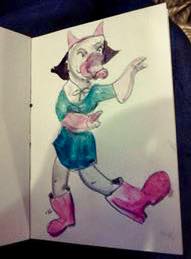
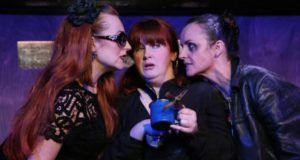
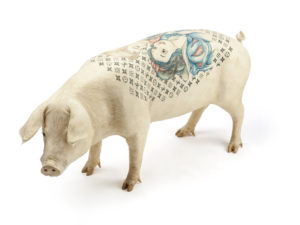
 (4 / 5)
(4 / 5)